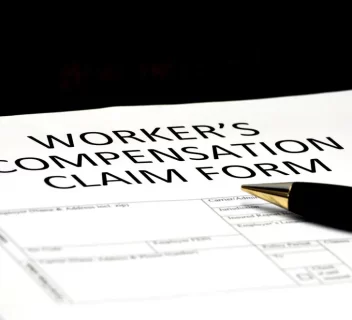How to File a Complaint Against Workers’ Compensation Adjusters: Your Rights Explained
Navigating the workers’ compensation system can be challenging, especially when disputes arise with the workers’ compensation adjuster or claims adjuster. If you feel you’ve been treated unfairly or your case hasn’t been handled properly, knowing how to file a complaint against workers’ compensation adjusters is essential to protecting your rights.
This article will explain the steps involved and provide context about workers’ compensation.
What is Workers’ Compensation?
Workers’ compensation is a state-mandated insurance program that provides financial benefits to employees who suffer work-related injuries or illnesses. It is designed to cover medical expenses, lost wages, rehabilitation costs, and other related losses, ensuring that workers can recover without facing severe financial hardship.
Workers’ compensation exists to protect both employees and employers. For workers, it ensures access to necessary resources following an injury. For employers, it reduces the risk of costly lawsuits related to workplace injuries. However, the system isn’t perfect, and disputes often arise, leading many to ask, “How do I file a complaint against workers’ compensation adjuster?”
What Sort of Workers’ Compensation Payout Could You Be Entitled To?
The amount and type of benefits you may receive depend on the severity of your injury and its impact on your ability to work. Common benefits include:
Medical Expenses
Coverage for treatments, surgeries, medications, and rehabilitation services.
Temporary Disability Benefits
Payments for lost wages if you cannot work temporarily.
Permanent Disability Benefits
Compensation if your injury results in long-term or permanent disability.
Vocational Rehabilitation
Support for training or education if you can no longer perform your previous job.
Death Benefits
Financial support to the family of a worker who dies from a work-related injury.
Unfortunately, disputes over these payouts can occur, leading injured workers to explore how to file a complaint against a workers’ compensation adjuster to address delays, denials, or other issues. Delays in handling claims can cause significant frustration and financial hardship for injured workers. In such cases, filing complaints with the appropriate regulatory bodies can help address these problems and ensure accountability.
How Do You Know Whether You’re Qualified to Receive Workers’ Compensation?
To qualify for workers’ compensation, you must meet specific requirements:
Employment Status
You must be an employee (not an independent contractor) covered under your employer’s workers’ compensation policy.
Work-Related Injury or Illness
The injury or illness must occur as a direct result of your job.
Timely Reporting
You must report the injury to your employer within the required timeframe, which varies by state.
Medical Documentation
You must seek medical attention and provide documentation linking your condition to your job.
If you meet these criteria but face resistance from the insurance company, learning how to file a complaint against a workers’ compensation adjuster can help you hold them accountable.
Common Reasons Claims Are Denied
Even if you meet all qualifications, your claim may still be denied by a workers’ compensation claims adjuster. Having a different adjuster assigned to each case can sometimes lead to misunderstandings and communication issues, ultimately affecting the management of claims. Common reasons include:
- Lack of evidence linking the injury to work.
- Failure to report the injury on time.
- Disputes over whether the injury occurred on the job.
Understanding these pitfalls can help you avoid issues and prepare to address disputes effectively.
Understanding Your Rights as a Claimant
As a claimant in the workers’ compensation system, you are entitled to certain rights under the law. Understanding these rights is important to help you seek fair treatment and access the benefits available to you. Here are some key rights to be aware of:
- The Right to File a Claim: If you’re injured on the job or become ill due to work-related activities, you have the right to file a workers’ compensation claim.
- The Right to Medical Treatment: You have the right to receive medical treatment for your work-related injury or illness. This includes access to medical providers and coverage for medical bills, ensuring you get the care you need without financial strain.
- The Right to Benefits: Depending on the nature of your injury or illness, you may be eligible for various benefits. These can include temporary disability benefits, permanent disability benefits, and vocational rehabilitation benefits, all designed to support you during your recovery.
- The Right to Appeal: If your claim is denied or you disagree with the decision made by the workers’ compensation adjuster, you have the right to appeal the decision. This ensures that you have a pathway to challenge and resolve disputes.
Understanding these rights is crucial in navigating the workers’ compensation system and ensuring you receive the benefits you are entitled to.
What Are the Pros and Cons of Workers’ Compensation?
Here are some of the key benefits and drawbacks of the workers’ compensation system:
Pros
- Provides financial support during recovery.
- Covers medical expenses related to the injury or illness.
- Reduces the need for litigation.
- Protects both employees and employers.
Cons
- Benefits may not cover all losses.
- Compensation amounts are often limited.
- The claims process can be complex.
- Disputes with adjusters or insurers may arise.
When disputes occur, understanding how to file complaints against workers’ compensation adjusters ensures that your rights are protected.
Do I Need an Attorney to Secure Workers’ Compensation? How Should I Go About Filing a Complaint?
While you don’t legally need an attorney to file a workers’ compensation claim, having an attorney can provide guidance and support in navigating the system. Attorneys can understand the nuances of the system and :
- Ensure all paperwork is completed correctly and on time.
- Negotiate with the insurance company on your behalf.
- Represent you during hearings or appeals.
If you encounter problems with the claims adjuster, such as delayed payments, unfair denials, or lack of communication, it’s important to know how to file a complaint against workers’ compensation adjuster.
Here are the steps:
- Document the Issue: Keep records of all communication and details of the dispute.
- Contact the Adjuster’s Supervisor: Address your concerns directly with their manager.
- File a Complaint with the State Agency: Each state has a regulatory agency overseeing workers’ compensation. File a formal complaint with them.
- Consult an Attorney: An experienced workers’ compensation attorney can guide you through the complaint process and advocate for your rights.
Avoid discussing specifics with your employer or insurer until you’ve consulted an attorney, as they can help you strategize and avoid pitfalls.
The Complaint Process
If you’re experiencing issues with your workers’ compensation adjuster, you have the right to file a complaint. Here’s a step-by-step guide to the complaint process:
- Gather Information: Before filing a complaint, gather all relevant information about your claim, including your claim number, identifying information, and details about the issue you’re experiencing. This documentation will be crucial in supporting your case.
- Contact the Adjuster: Reach out to the adjuster and try to resolve the issue amicably. If the issue persists, ask to speak to a supervisor or someone who can assist you. Clear communication can sometimes resolve misunderstandings or errors.
- File a Complaint: If the issue cannot be resolved, file a complaint with the California Division of Workers’ Compensation (DWC) or your state’s equivalent agency. Complaints can typically be filed online, by phone, or in person. Ensure you follow the specific procedures outlined by your state agency.
- Provide Supporting Documentation: When filing a complaint, provide supporting documentation, such as medical records, witness statements, and correspondence with the adjuster. This evidence will help substantiate your claims and facilitate a thorough investigation.
- Wait for a Response: After filing a complaint, wait for a response from your state’s agency. They will investigate your complaint and provide a decision. Be patient, as this process may take some time.
Contact 1-800-THE-LAW2 for a Free Consultation
If you’re struggling with a workers’ compensation claim or facing issues with an adjuster, don’t hesitate to seek professional help. Contact 1-800-THE-LAW2 for a free consultation. The experienced attorneys in our network can guide you through the process, including understanding how to file a complaint against workers’ compensation adjusters.




